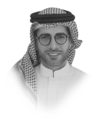Saudi reforms: the show must go on

https://arab.news/j726f
With the speed and magnitude of the accomplishments of the recent Saudi reforms, it is hardly surprising that many people may be overwhelmed. The metaphor I like to use is that they have not downloaded the latest software update: for them, Saudi Arabia is still a place where women are not permitted to drive, where cinemas are banned, and the ultra conservatives dominate society.
That is why an event such as the Elie Saab fashion show in Riyadh last week, marking the 45th anniversary of the Lebanese haute couture icon’s brand, was perhaps a little too much for some to comprehend.
Eight short years ago, even a fashion show on its own in the Kingdom would have been unthinkable: but a fashion show with live performances by A-List entertainers Jennifer Lopez, Camila Cabello and Celine Dion was up there with the largest and most glamorous in the world.
However, that is the new Saudi Arabia — a country on a mission to compete in almost every aspect on a global level. While entertainment is only a part of it, it tends to attract more attention given the very nature of celebrity and showbusiness. On that front, one cannot but acknowledge the achievements of Turki Alalshikh, chairman of the General Entertainment Authority.
The beauty of the Vision 2030 reforms is, each to his own— this is why women across the kingdom today are free to be veiled, don a headscarf, or wear no abaya at all.
Faisal J. Abbas
Alalshikh essentially took a non-existent sector and, in no time, put Saudi Arabia firmly on the map. The annual Riyadh Season dazzles visitors every year with world class events and attractions, and this year alone has already clocked in six million visitors. As for sports entertainment, in terms of boxing alone, Alalshikh is now being spoken of in the same breath as Don King, the legendary American titan of the fight game: whenever he is involved, it is “big time.”
Just to be clear, entertainment, like fashion, is a matter of personal taste. For example, while I would be unlikely to go to events on the MDLBEAST calendar of rave music festivals, I would happily attend a performance at AlUla by the Italian tenor Andrea Bocelli. Others will have other musical interests, or none at all. That is absolutely fine: the beauty of the Vision 2030 reforms is, each to his own. A more profound example is what Crown Prince Mohammed bin Salman told CBS in a 2018 interview: “The decision is entirely left for women to decide what type of decent and respectful attire she chooses to wear” — this is why women across the kingdom today are free to be veiled, don a headscarf, or wear no abaya at all.
Of course, not everyone is happy with this new openness, or with the choices now available to Saudi citizens and expats in the Kingdom. For example, a YouGov poll for Arab News in October 2017 suggested that nearly eight in 10 Saudis were in favor of women driving: not a surprising outcome, since more than 60 percent of the population are under the age of 30. The problem is that for a long time it was the objecting minority who dominated public opinion. Now, not only do decisions such as permitting women to drive empower the majority, but they are democratic in the sense that women are not forced to drive if they don’t want to.
All of which is why it pains to me to witness the unjustifiable attacks on Turki Alalshikh personally, and on anything he does as distasteful — most recently the complaints that the cube-shaped backdrop to the Elie Saab show was somehow disrespectful to the Kaaba, Islam’s holy shrine. Such criticism is too ridiculous to dwell on: I very much doubt that the Star Trek set designers had the Kaaba in mind when they created the Borg’s cube space ships, or indeed Erno Rubik when he invented his eponymous 3-D puzzle cube.
It is admirable that the Kingdom has welcomed 100 million tourists (a target set for 2030 and already achieved) and is opening world-class maritime resort destinations, all against a backdrop of everything the region is currently enduring.
Faisal J. Abbas
Others say that with everything going on in the Middle East, the Kingdom ought not to be growing its tourism and entertainment sectors, but that argument is upside down. Far from these thriving industries taking anything away from the Kingdom’s religious responsibilities or the tireless efforts of its foreign minister to contain the alarming regional geopolitics that we have to live with, they are actually impressive in their own right. It is admirable that the Kingdom has welcomed 100 million tourists (a target set for 2030 and already achieved) and is opening world-class maritime resort destinations, all against a backdrop of everything the region is currently enduring.
People who have not downloaded the latest software and upgraded to Saudi Arabia 2.0 either seem blind, or are deliberately ignoring that all this is going on while the Kingdom successfully hosts millions of pilgrims every year during Hajj, and has given more than $185 million in humanitarian aid to Gaza alone this year, plus millions more to both Lebanon and Yemen. In parallel, Saudi Foreign Minister Prince Faisal bin Farhan toured the world to lobby for a ceasefire and formed a global coalition in support of a two-state solution and the recognition of Palestine.
I understand that this may be too much for many to grasp, or believe is achievable, but this is the reality. As for the criticism, reforms will continue ... and the show must go on!
- Faisal J. Abbas is the editor in chief of Arab News. X: @FaisalJAbbas









































